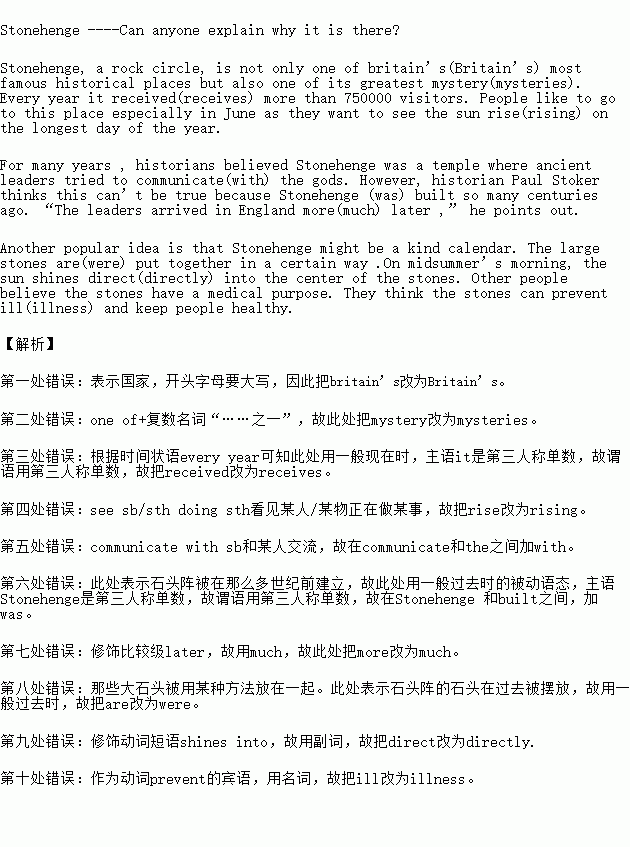��Ŀ����
�ٶ�Ӣ�������ʦҪ��ͬ��֮�佻�������ģ���������ͬ��д���������ġ����й���10�����Դ���ÿ���������������������漰һ�����ʵ����ӡ�ɾ�����ġ����ӣ���ȱ�ʴ���һ��©�ַ��šģ�����������д�������ӵĴʡ�ɾ�����Ѷ���Ĵ���(��)�������ģ��ڴ��Ĵ��»�һ���ߣ����ڸô�����д���ĺ�Ĵʡ�
ע�⣺1.ÿ���������ľ�����һ�ʣ�
2.�ڴ���ĵ����ڵ����ϴ��⡣
3.ֻ������10�������ߣ��ӵ�11���𣩲��Ʒ֡�
Stonehenge ----Can anyone explain why it is there?
Stonehenge, a rock circle, is not only one of britain��s most famous historical places but also one of its greatest mystery. Every year it received more than 750000 visitors. People like to go to this place especially in June as they want to see the sun rise on the longest day of the year.
For many years , historians believed Stonehenge was a temple where ancient leaders tried to communicate the gods. However, historian Paul Stoker thinks this can��t be true because Stonehenge built so many centuries ago. ��The leaders arrived in England more later ,�� he points out.
Another popular idea is that Stonehenge might be a kind calendar. The large stones are put together in a certain way .On midsummer��s morning, the sun shines direct into the center of the stones. Other people believe the stones have a medical purpose. They think the stones can prevent ill and keep people healthy.

